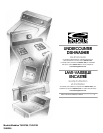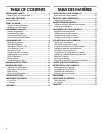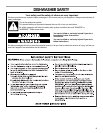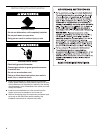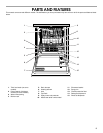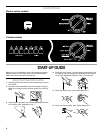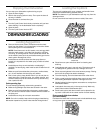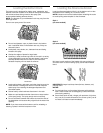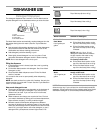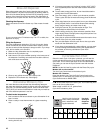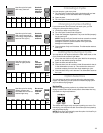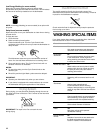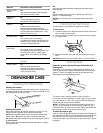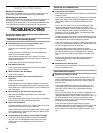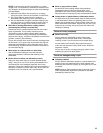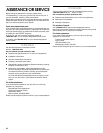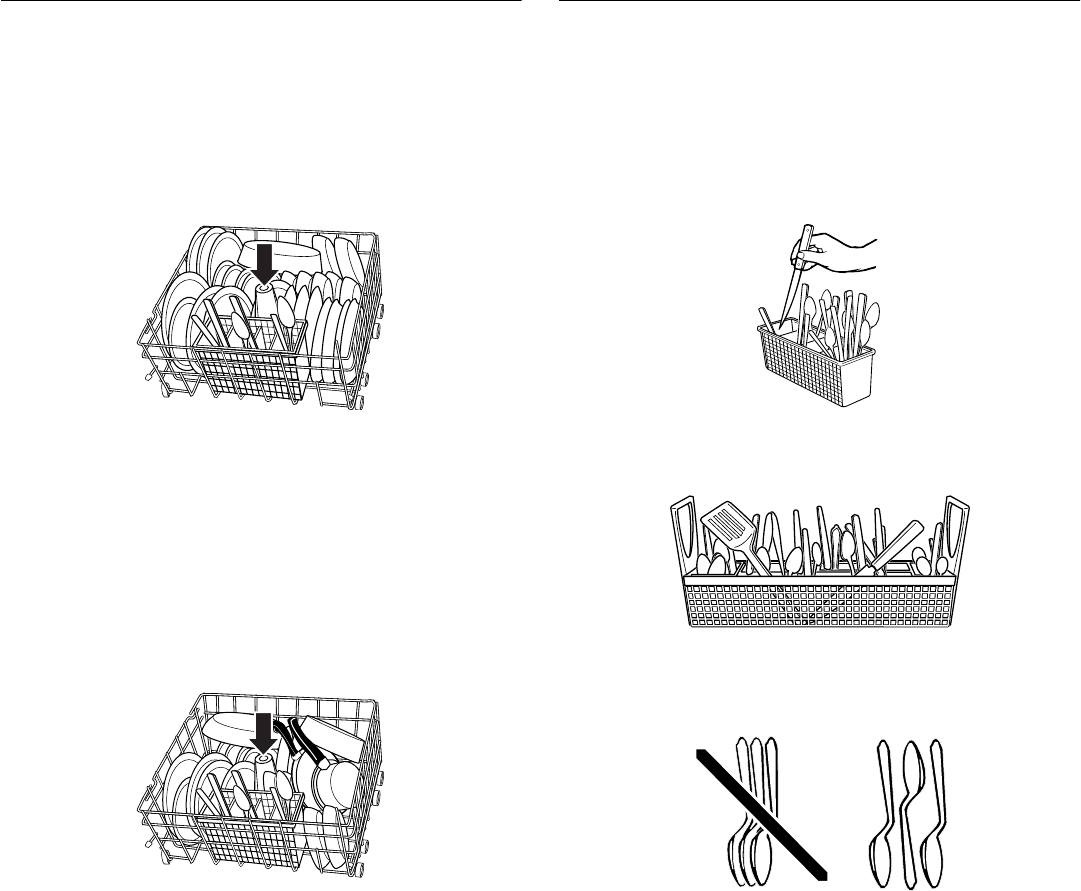
8
Loading the Bottom Rack
The bottom rack is designed for plates, pans, casseroles, and
utensils. Items with cooked-on or dried-on food should be loaded
with soiled surfaces facing inward to the spray. (See
recommended loading patterns shown.)
NOTE: The features on your dishwasher rack may vary from the
drawings shown.
Do not cover spray tower. See arrow.
Mixed load
■
Do not load glasses, cups, or plastic items in the bottom
rack. Load small items in the bottom rack only if they are
secured in place.
■ Load plates, soup bowls, etc., between tines and facing
inward to the spray.
■ Overlap the edges of plates for large loads.
■
Load soup, cereal, and serving bowls in the rack in a variety
of ways depending upon their size and shape. Load bowls
securely between the rows of tines. Do not nest bowls
because the spray will not reach all surfaces.
Utensil load
■
Load cookie sheets, cake pans, and other large items at the
sides and back. Loading such items in front can keep the
water spray from reaching the detergent dispenser and
silverware basket.
■
Secure heavily soiled cookware face down in the rack.
■
Make sure pot handles and other items do not stop rotation
of the spray arm(s). The spray arm(s) must move freely.
■
Do not load items between the bottom rack and the side of
the dishwasher tub because they might block the water inlet
opening.
NOTE: If you have removed the bottom rack for unloading or
cleaning, replace it with the bumpers in front.
Loading the Silverware Basket
Load the silverware basket while it is in the bottom rack or take
the basket out for loading on a counter or table.
NOTE: Unload or remove the basket before unloading the racks
to avoid spilling water droplets on the silverware.
Style 1
(on some models)
Style 2
(on some models)
Mix items in each section of the basket with some pointing up
and some down to avoid nesting. Spray cannot reach nested
items.
IMPORTANT: Always load sharp items (knives, skewers, etc.)
pointing down.
NOTES:
■
Do not load silver or silver-plated silverware with stainless
steel. These metals can be damaged by contact with each
other during washing.
■
Some foods (such as salt, vinegar, milk products, fruit juices,
etc.) can pit or corrode silverware. Run a rinse cycle if you do
not have a full load to wash immediately.



